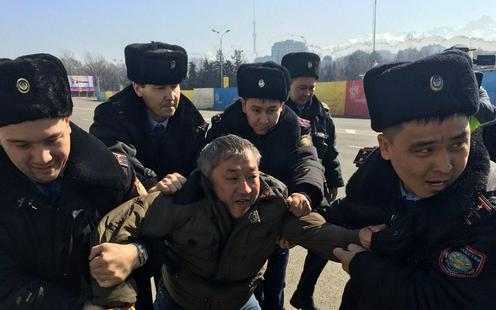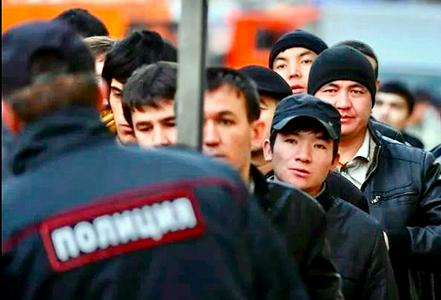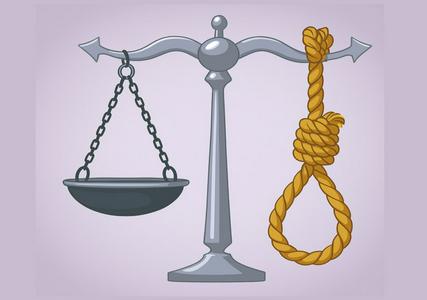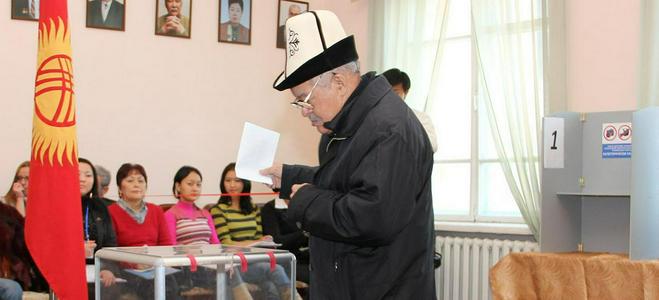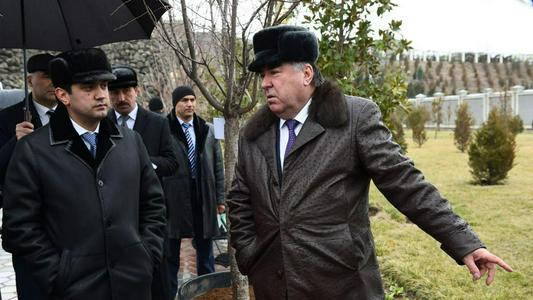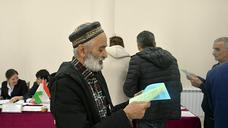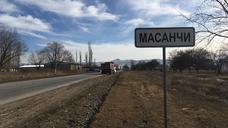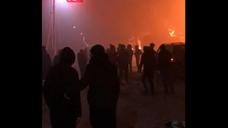Kazakh internal affairs minister Yerlan Turgumbayev has labelled as “preventive measures” the mass arrests carried out ahead of yesterday’s opposition demonstrations, KazTAG reports (in Russian).
The Kazakh opposition movement Oyan Qazaqstan, the unregistered Democratic Party, the Democratic Choice of Kazakhstan movement (banned in the country as an extremist organisation) and the Koshe Party had announced a joint demonstration on 1 March outside of the municipal akimat (administration) building in Almaty. This would have been the first demonstration to unite the country’s different opposition movements. However, demonstrators were unable to make it to the appointed meeting place, Fergana’s correspondent at the scene reported. Instead of their fellow activists, they were met at Almaty’s Republic Square by police and security operatives dressed in black. A number of other activists, including Democratic Party leader Zhanbolat Mamai, were arrested as they left their homes.
“Despite repeat warnings from the Office of the Prosecutor-General, yesterday some members of the public tried to hold a demonstration in places where an extremist organisation banned in Kazakhstan (the reference is to the movement Democratic Choice of Kazakhstan — Fergana) had announced its activities. (...) Yesterday, in order to uphold public order, preventive measures were taken by the police,” Turgumbayev stated, adding that around 80 individuals had been arrested.
Fergana’s correspondent at the scene witnessed how, around an hour before the appointed start of the demonstration, police began to round up suspected participants all over Almaty. Activists of the Oyan Qazaqstan movement were arrested as they left a café not far from the akimat headquarters, with a number of scuffles breaking out as passers-by got caught up in the operation. On social media, a number of other Oyan Qazaqstan activists reported being arrested as they left their homes. Democratic Party leader Zhanbolat Mamai’s wife Inga Imanbai recounted how she had tried to film her husband’s arrest outside of their home in her capacity as journalist. The police, however, confiscated her mobile phone, ripped up her journalistic accreditation, and in the ensuing altercation one of the police hit her head against a fence and she had to be taken to hospital. Those who did make it to Republic Square found the whole area cordoned off by police. Anyone who still managed to make onto the square itself was arrested and dragged off to waiting police vans.
Most of those arrested were subsequently released, though many reported being detained far longer than the statutory three hours. Turgumbayev stated that four people had been charged for administrative offenses, two for resisting arrest, and one for organising an unauthorised demonstration.
The anti-government demonstration had been called in part in response to the death in police custody last week of civil rights activist Dulat Agadil. His death, officially blamed on a heart attack, provoked such a backlash from Kazakh society that all of the country’s security agencies were forced to respond publicly. Even Kazakh president Kassym-Jomart Tokayev commented on the incident, strongly denying claims that Agadil had died at police hands.
